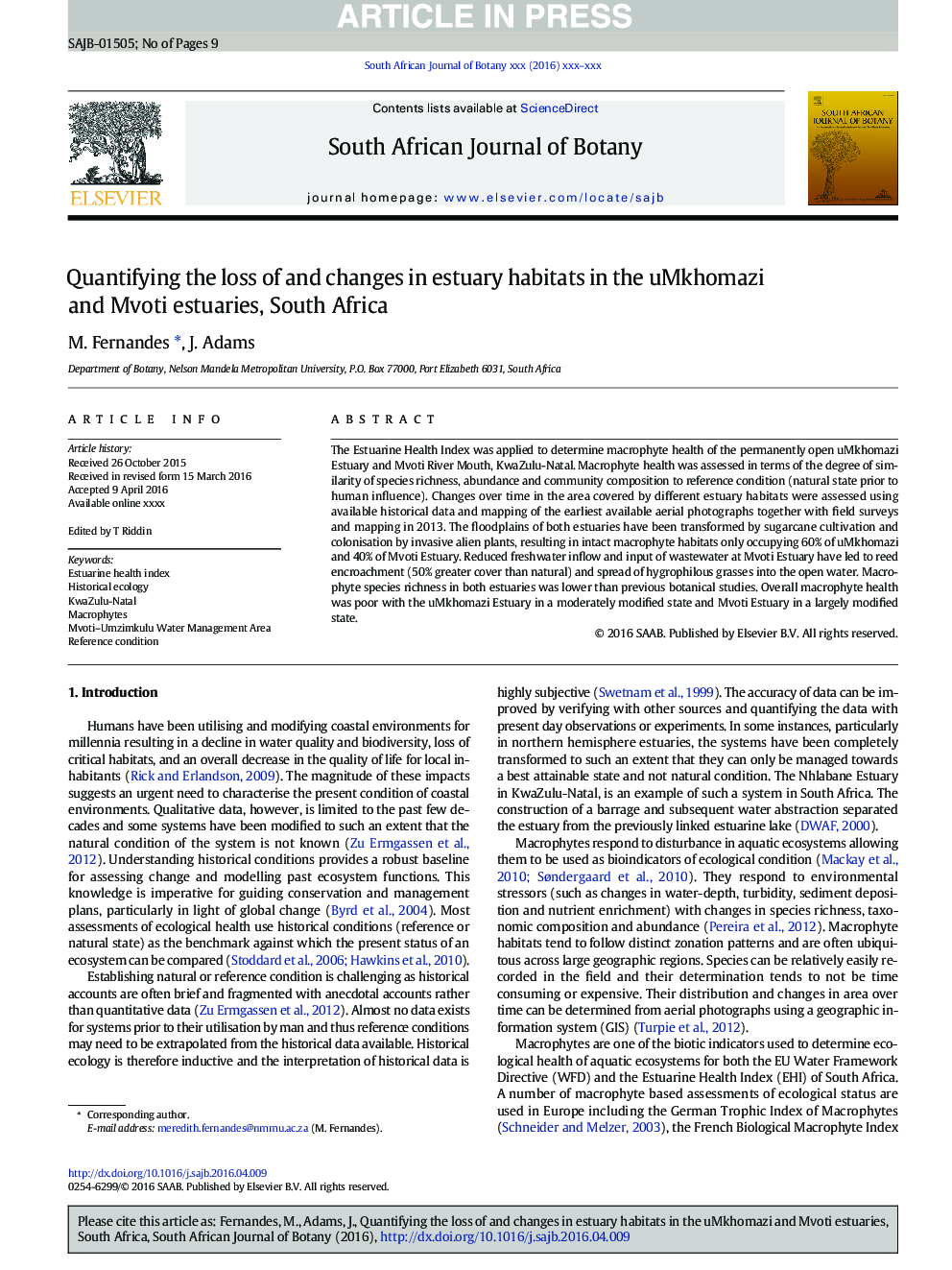| Article ID | Journal | Published Year | Pages | File Type |
|---|---|---|---|---|
| 5763148 | South African Journal of Botany | 2016 | 9 Pages |
Abstract
The Estuarine Health Index was applied to determine macrophyte health of the permanently open uMkhomazi Estuary and Mvoti River Mouth, KwaZulu-Natal. Macrophyte health was assessed in terms of the degree of similarity of species richness, abundance and community composition to reference condition (natural state prior to human influence). Changes over time in the area covered by different estuary habitats were assessed using available historical data and mapping of the earliest available aerial photographs together with field surveys and mapping in 2013. The floodplains of both estuaries have been transformed by sugarcane cultivation and colonisation by invasive alien plants, resulting in intact macrophyte habitats only occupying 60% of uMkhomazi and 40% of Mvoti Estuary. Reduced freshwater inflow and input of wastewater at Mvoti Estuary have led to reed encroachment (50% greater cover than natural) and spread of hygrophilous grasses into the open water. Macrophyte species richness in both estuaries was lower than previous botanical studies. Overall macrophyte health was poor with the uMkhomazi Estuary in a moderately modified state and Mvoti Estuary in a largely modified state.
Related Topics
Life Sciences
Agricultural and Biological Sciences
Agronomy and Crop Science
Authors
M. Fernandes, J. Adams,
